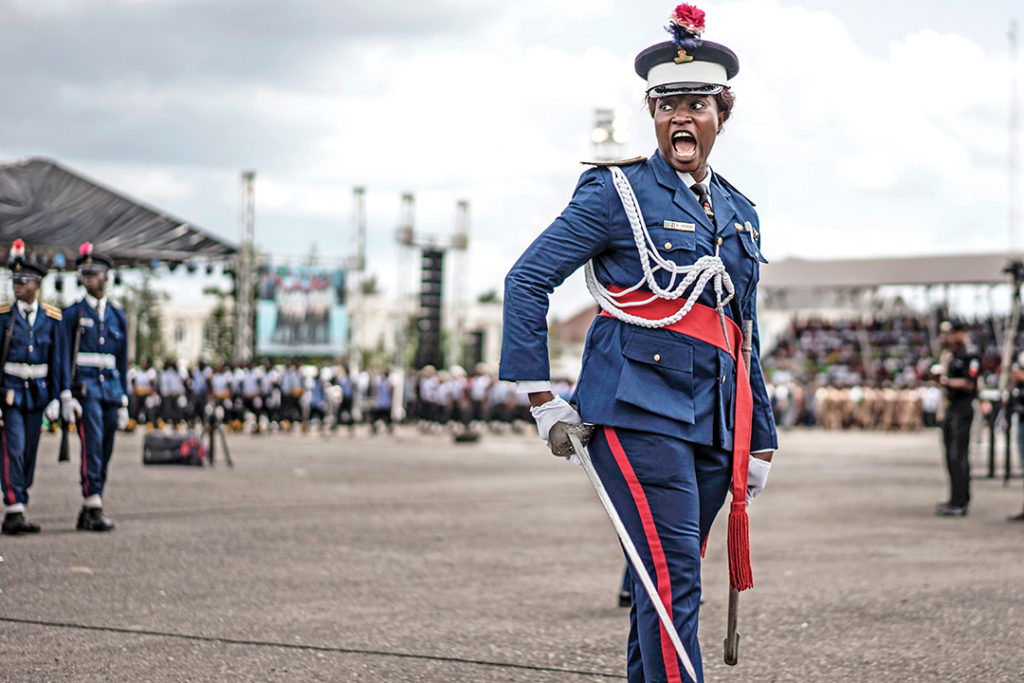ADF STAFF
Government officials and citizens packed into the stands of Freedom Square in Owerri, Nigeria, on May 29, 2017, to mark an important date in the country’s recent history.
Police officers, Nigerian Army personnel and civilians marched through the public square about 80 kilometers north of Port Harcourt in Imo State. But they weren’t there to celebrate a person or a battle; they were celebrating a form of government.
The assembled crowds were commemorating Democracy Day, a yearly celebration of the restoration of democracy after years of military rule in the federal republic. The holiday marks May 29, 1999, when Olusegun Obasanjo took office as president. His inauguration ended years of military rule that began in 1966 and was interrupted only briefly by a democratic period from 1979 to 1983.
Bola Tinubu, a former Lagos State governor, urged Nigerians to nurture democracy so that it would contribute to the growth and progress of Nigeria. “Democracy Day and our commemoration of it must be more than an empty ritual,” Tinubu told Nigeria’s Premium Times. “It must add up to more than another reason to have another holiday. We, as a people, choose democracy as our preferred form of governance, not because it would be easy to achieve or to hold even once we have it.
“We choose democracy because history has taught us that the welfare of the people is best and perhaps only secured by government responsive and accountable to the people. This can only be democracy.
“Many Nigerians have fought and sacrificed to enshrine democracy as our way of governance,” Tinubu said. “We mark this day in honor of these people, many of whom labored in obscurity and without proper thanks, to achieve this precious thing for the nation.”

